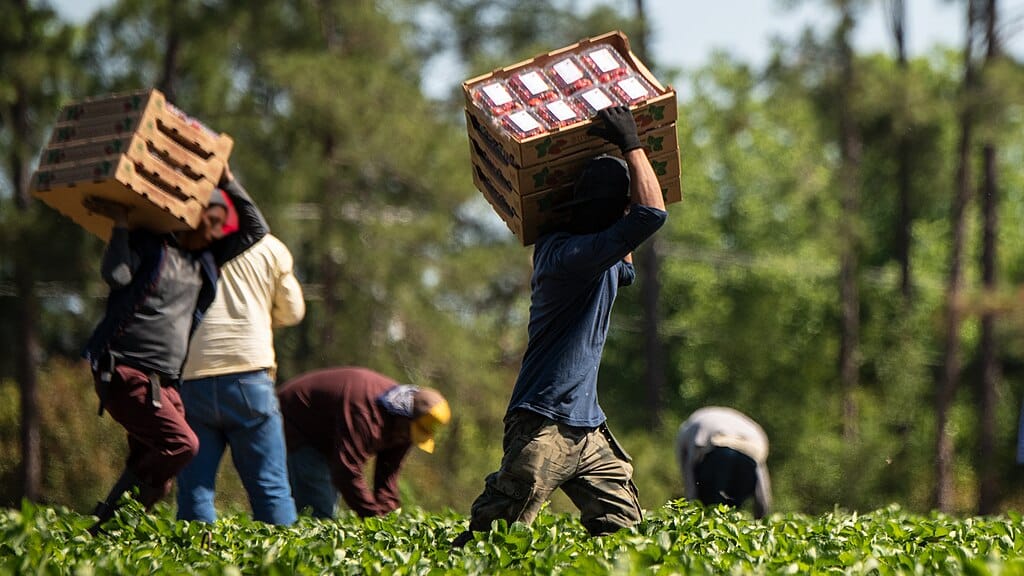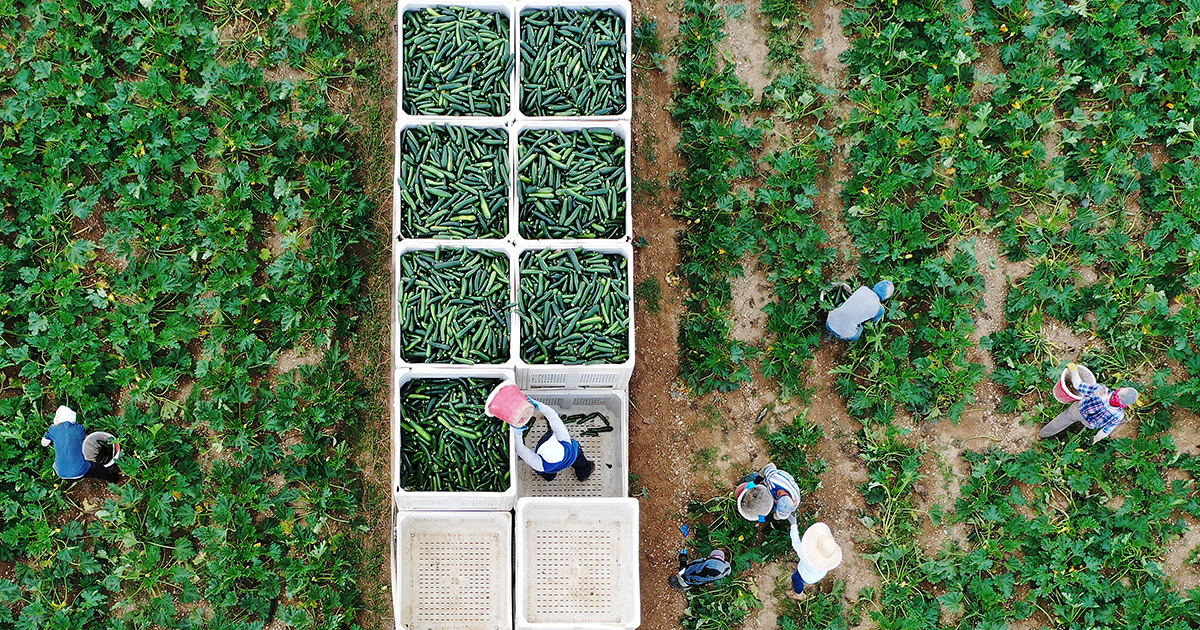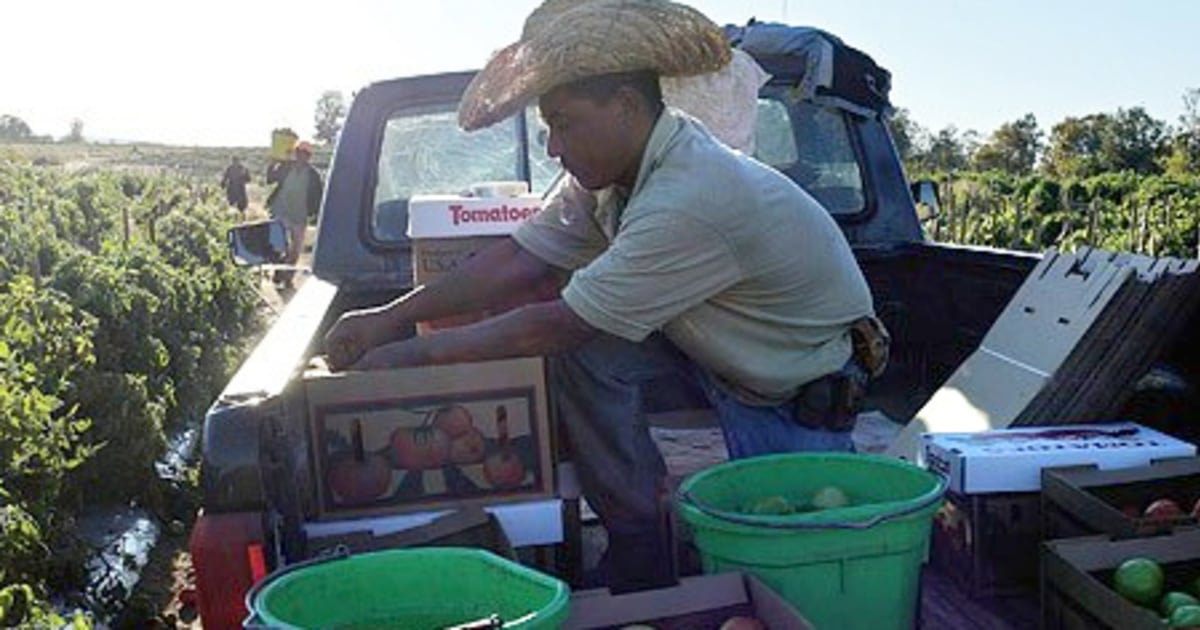Basic human rights versus your grocery bill
Why that's a false dichotomy

In different comment threads around the internet yesterday--where people were also talking about the upcoming election in general, and Trump's deportation plans, specifically--I noticed a recurring theme.
A minority of people posting that they would continue to support the former president, despite misgivings, because they believed he would bring down the price of groceries.
(Thankfully, this did not occur in the comments on my post--but I did see it mentioned in response to several things I was reading.)
They actually mentioned the cost of groceries--not food, and not inflation overall. One woman even said, "Under Trump, I didn't have to pay $6 for a dozen eggs .." Another wrote: "Why do you care so much about deportations, but not about the issues that Americans are facing, like higher prices for groceries? America first, for Americans."
At that point, I had to step away from the computer.
You'll trade your humanity for a couple dollars off the price of a box of Wheaties?
And then I thought more about it, and realized that it's one more example of the scapegoating and false dichotomies that are a hallmark of autocratic governments the world over: Distract people from the real source of their problems and give them a vulnerable, largely powerless group to blame, while the problems don't get solved and likely get worse.
(Also, for all I know, these were all from one Russian/Iranian/Chinese disinformation account and a lot of sock puppets. All the better to sow discord ...)
But in case these were actual people, and in case they were serious--know this: If Trump is elected and able actually to deport all of the undocumented immigrants, the cost of groceries is likely to go up significantly, not down.
Almost half of all U.S. farmworkers are undocumented
According to data collected by the U.S. Department of Labor's National Agricultural Workers Survey and published by the United States Department of Agriculture (USDA), roughly half of all hired crop farmworkers do not have authorization to work in the United States.
The share of hired crop farmworkers who were not legally authorized to work in the United States grew from roughly 14 percent in 1989–91 to almost 55 percent in 1999–2001; in recent years it has declined to about 40 percent. In 2018–20, 30 percent of crop farmworkers were U.S. born, 6 percent were immigrants who had obtained U.S. citizenship, 23 percent were other authorized immigrants (primarily permanent residents or green-card holders), and the remaining 41 percent held no work authorization.

Yet, the American Farm Bureau Federation notes that there are still critical labor shortages in the agricultural sector, with many farmers not able to hire as many workers as they need to harvest their crops each year.
This is partly because, even when wages and benefits are increased, there are still not enough U.S. citizens applying. The current agricultural workforce is also aging, requiring younger workers to replace them. Immigrants have filled these shortfalls in the workforce for decades, but in recent years, fewer immigrants are coming to the U.S. to work in agriculture, a result of current U.S. immigration policy and rising incomes in Mexico.
The labor shortage puts American agriculture at a competitive disadvantage. American growers’ inability to find dependable sources of labor is a major reason for the significant increase in the amount of fresh fruit and vegetables that are imported into the U.S, costing billions in sales and tens of thousands of jobs. Without workers, crops wither in the fields, contributing to food waste and millions of dollars in lost production.

America's farms need more immigrants, not fewer, to provide affordable food for the country. This should be accomplished through immigration reform, advocates say, not deportation.
Relying on large numbers of undocumented individuals to fuel an industry is bad policy for workers and employers alike. But forcing them to leave would be even more devastating to our food supply, and fundamentally unfair, given what they’ve contributed. For example, the dairy industry estimates that retail milk prices would nearly double if farmers lost their foreign-born workers. Overall, agricultural output would fall by $30 to $60 billion.
What happens when workers leave?
But couldn't unemployed U.S. citizens take these jobs?
In places where farms have tried to replace immigrant crop workers with native-born U.S. workers--it hasn't gone well.
Faced with ongoing labor shortages, groups of farmers in different states have tried many strategies to recruit new workers--including raising wages--with little success.

Farm work, particularly planting and harvesting food crops, has evolved into a highly specialized and physically demanding occupation. Some workers specialize in just one food crop, for example, like lettuce, cucumbers, or strawberries. They work long hours, in sometimes hazardous conditions--for low pay and few benefits.
While it's true that if the producers were willing to raise wages even higher than the $13-$14/hour that is now, they might attract more workers--it would either make it impossible for growers to turn a profit or it would make the crops they pick a lot more expensive.
Legal pathways benefit (almost) everyone
The H-2A visa program allows a limited number of farmworkers to enter the U.S. and legally work in agriculture. But the program needs to be expanded in order to meet the labor needs of American farms.
Workers without legal status are vulnerable to exploitation and abuse. And, relying on so many undocumented workers to havest the food supply has risks to the producers and consumers as well.
For decades, though, the nation's food growers--as well as the nation's meat processors, textile factories, and construction companies--have benefited from this shady system using undocumented workers to depress wages, while reaping the profits and leaving the workers most at risk--of injuries, of discrimination, of wage theft, etc. all while facing the ever-present threat of arrest and deportation.
If you want more affordable food, mass deportation is not the answer. And if you want a food supply not produced with undocumented labor--the solutions will be much more complex.
Tom Surtees, then the director of industrial relations for the state of Alabama, was interviewed by NBC News to discuss the state's 2011 crackdown on the use of undocumented workers, which resulted in thousands of immigrants leaving the state and lots of employers holding the bag.
"I don’t consider this a labor shortage," Surtees said. "We’re transitioning from a business model. Whether an employer in agriculture used migrant workers, or whether it’s another industry that used illegal immigrants, they had a business model and that business model is going to have to change.”







